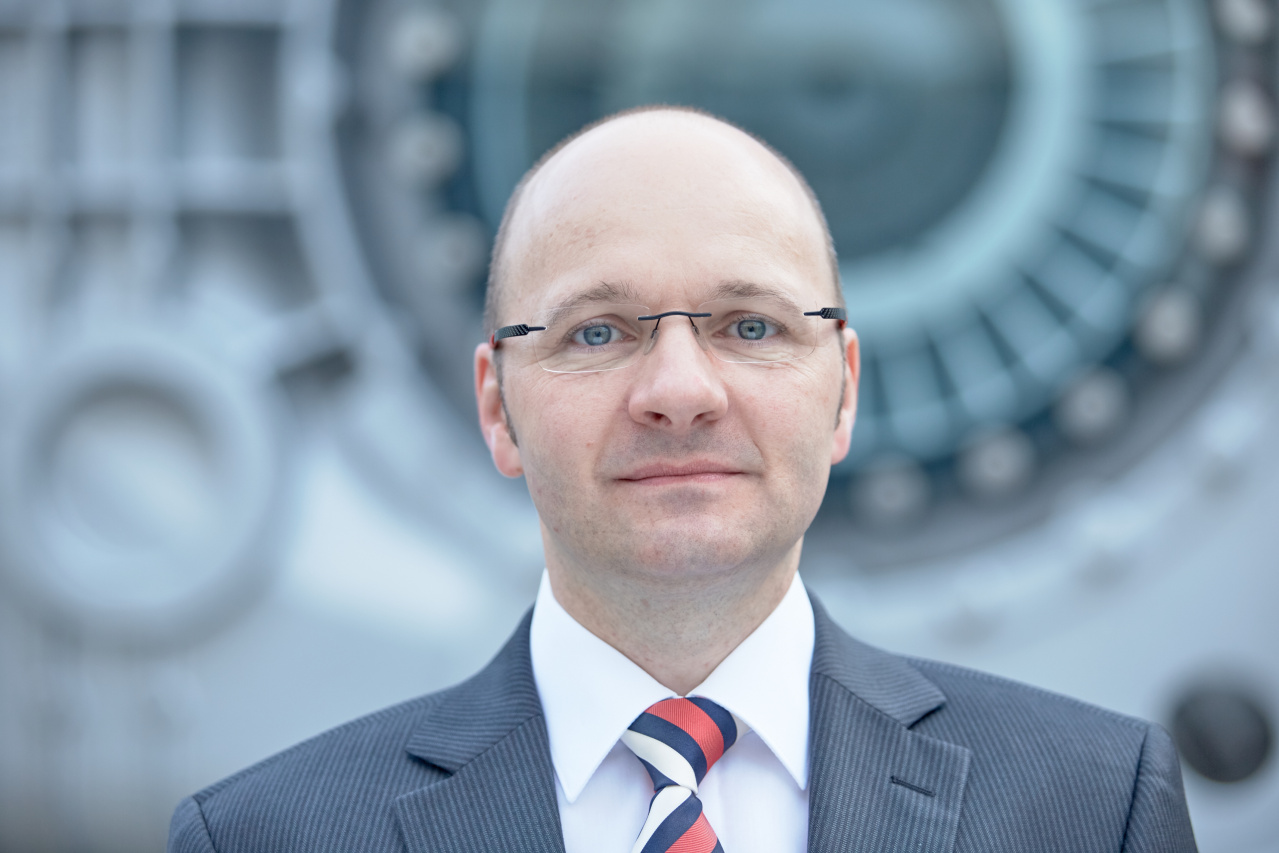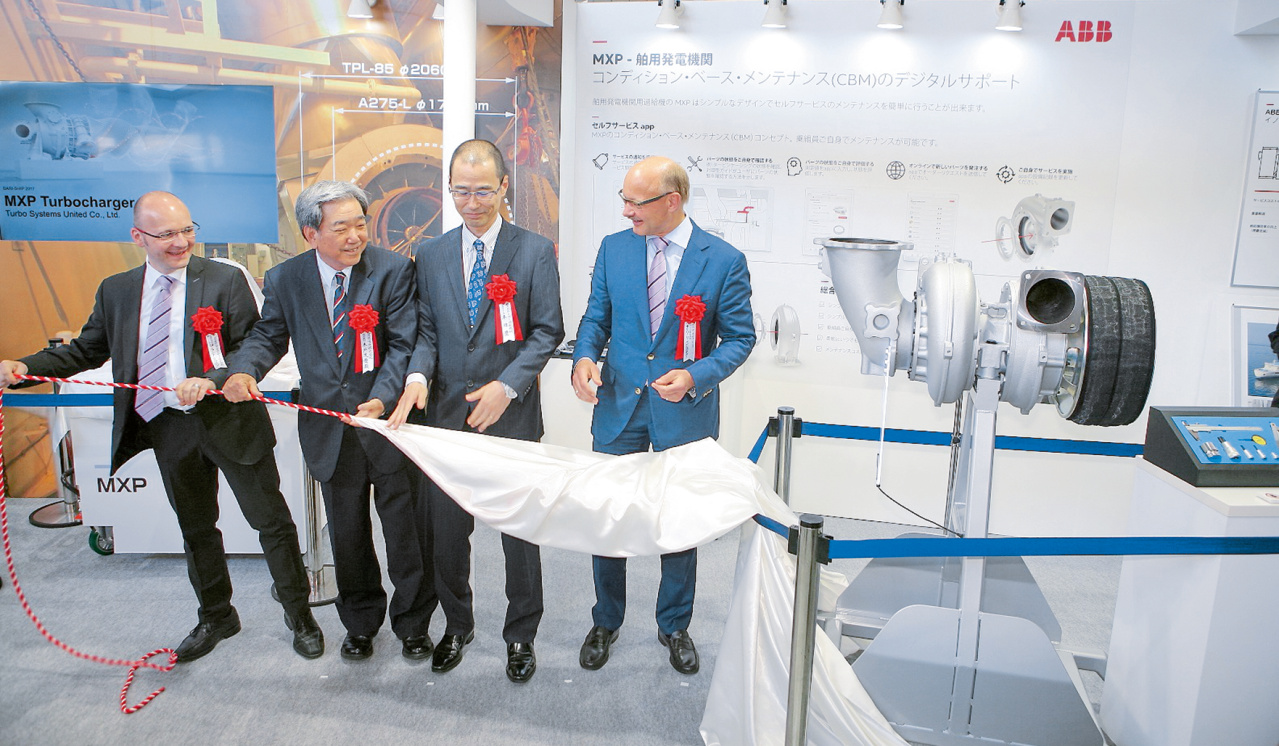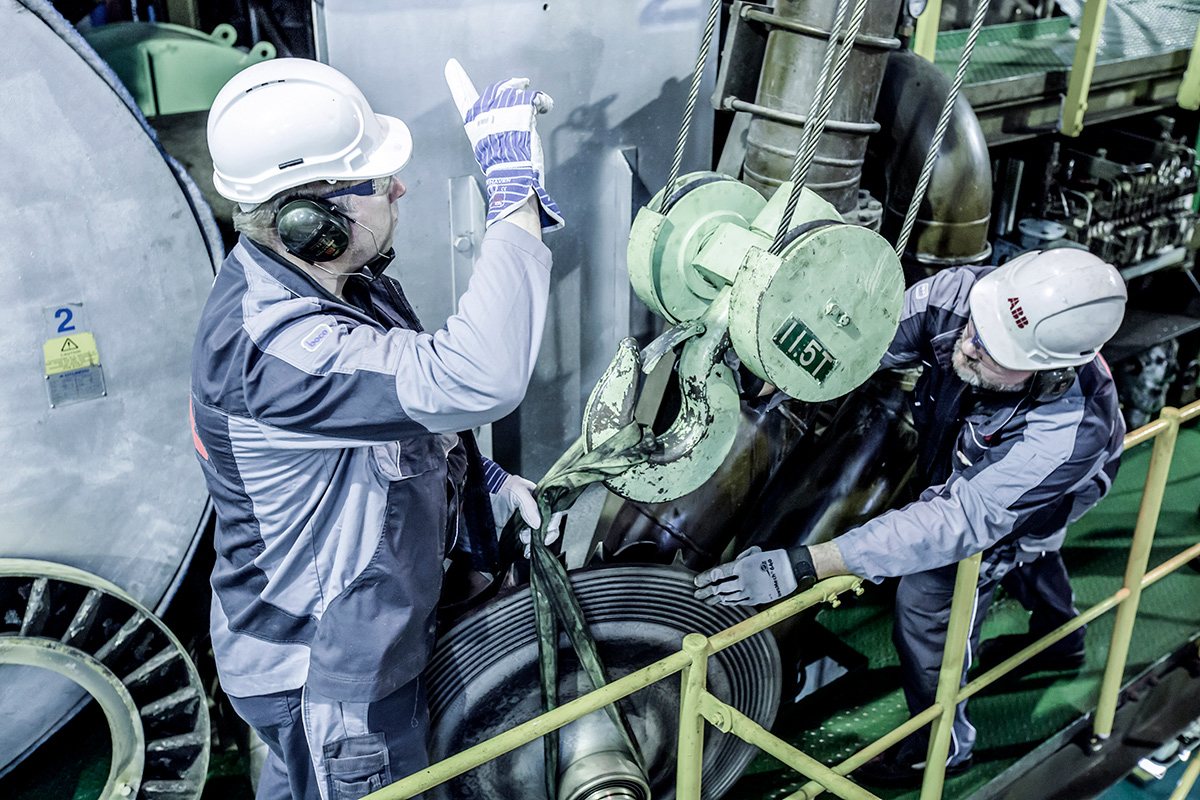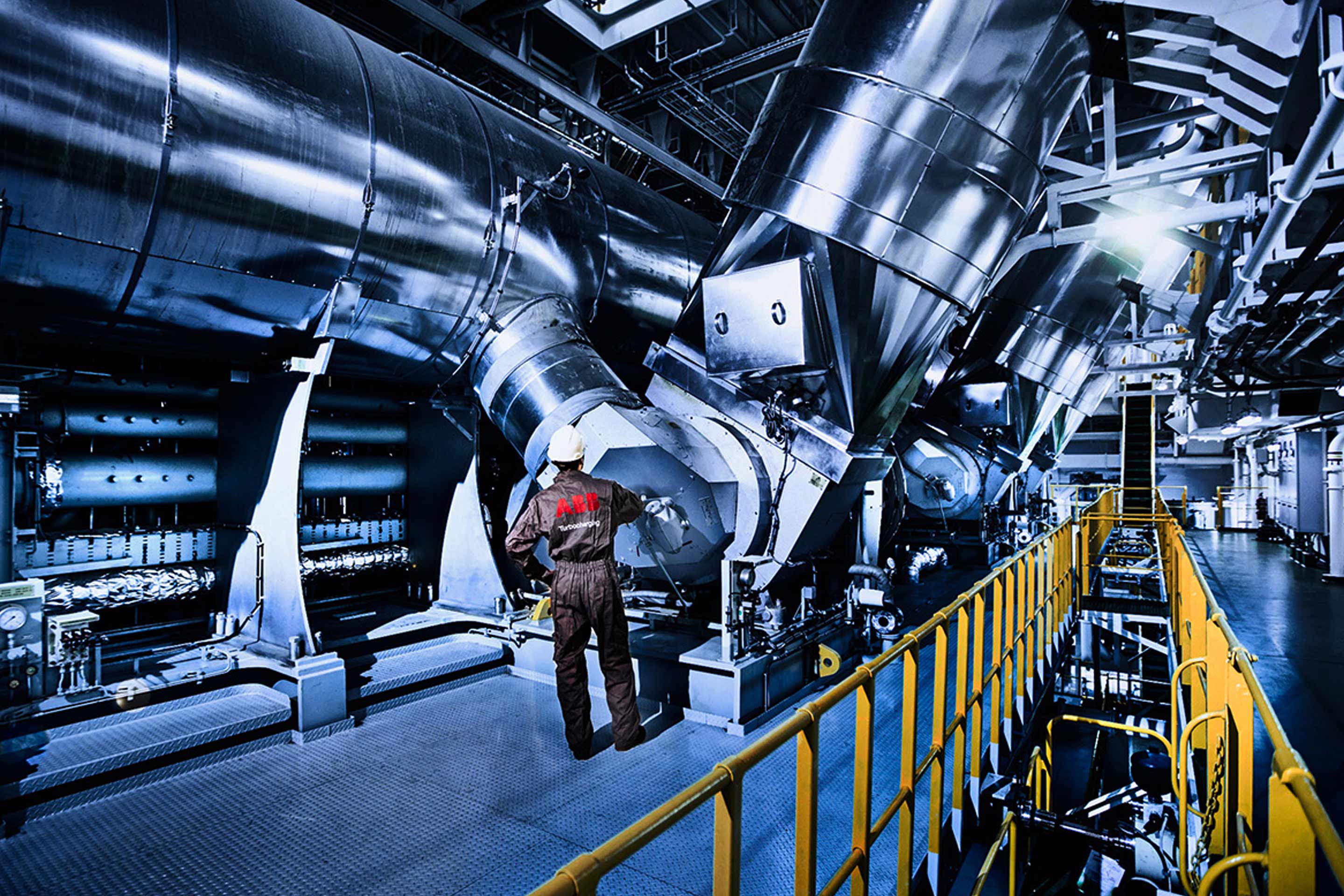Roland Schwarz is ABB’s Global Head of Service. In a storied career at the company, stretching over more than 25 years, he’s worked in many roles, most recently as the Executive Director and President of ABB Turbocharging’s business in Japan. In this interview, Roland explains the push towards new models for smarter service, and how global standards can mesh with local cultures.
How do you describe your job?
I have had the honor to lead the global service business at ABB Turbocharging since December 2019. I lead our global team in developing service offerings and overseeing their execution, to keep our customers’ turbochargers in peak condition. I love my job: it’s a great company and, working with people from different background and regions and customers operating in different industries, I learn something and move forward every day.
A really interesting aspect is that while my job and our global headquarters are based in Switzerland, 99 percent of our business is actually outside the country, at the world’s ports, shipyards, power plants, or in the workshops of our global service network. So, I have the opportunity to get exposure to customers all over the world.
And what are your largest challenges?
Market demands and market dynamics are changing much faster than historically. In particular, a one-size-fits-all approach, which we did well in the past, and which was a large success factor, doesn’t really work anymore. We need much more individual solutions and offerings to meet customer requirements for various applications and different operation patterns. This introduces quite a lot of complexity, and so to manage that in a global context is certainly one of the challenges.
 Roland Schwarz, Global Head of Service
Roland Schwarz, Global Head of Service
At the same time, things are changing just as quickly for our customers, both in the marine and energy sectors. They are continually at the brunt of new regulations and new targets, particularly around emissions. New policies are introduced, which change their situation and their priorities. Then, there are completely unexpected world events, such as Covid-19 and the oil price slump, just to mention two recent cases, which can change the market and dynamics fundamentally again.
What have been some of your priorities since starting in your role?
Most recently I worked on the launch of Turbo MarineCare as our latest service offering. This is a fixed-price service agreement for turbochargers on 2-stroke engines applied on merchant marine vessels. It covers all the services, repairs and parts required. Maintenance will be done during drydocking so that the vessel can operate smoothly from drydock to drydock without further intervention on the turbos.
More generally, as a long-established, global network, we have a large number very senior, highly experienced people across the world, who between them possess considerable expertise. Making their knowledge available to engineers and technicians all over the world is certainly an ongoing objective.
We have created internal processes and tools to bring that together and share this knowledge with our global network, with the aim to create greater benefit to our customers. Our databases contain information about the entire installed base of turbochargers, the specifications of their equipment and the history of its service. So, no matter where a vessel docks for service, for example, all that information from across the world is easily at hand.
At the same time, we also want to create a global best practice for people: how service is performed and how processes are carried out. We’re actively managing teams to create a global turbocharging family and share knowledge and best practices. It’s very much a two-way street, though. I firmly believe you can learn a great deal from people in other countries and other cultures, and we aim to surface and share those insights. It’s not just through software tools, either: it’s through meetings, regular calls and pro-active sharing across the world.
 Bariship, Japan, 2017
Bariship, Japan, 2017
Can you give a specific example of this sharing in action?
Our technical experts capture technical or operational problems in the field in a structured way and ensure that latest knowledge is made available and shared with our global service network as part of our learning organization and to ensure risk mitigation for customers.
One other good example is safety. If a potential risk is identified or an incident occurs in one location, it’s quite possible the same incident could happen elsewhere at customer site or in our organization. So, we’re careful to unpick any incident, wherever it happens, work out how it could have been avoided, and share that knowledge worldwide to ensure safe operation for our people and customers.
We often develop service offerings in response to a very specific customer use case, or for a specialized industry sector. By sharing those offerings, other ABB offices can respond to similar customer problems and use-cases more quickly: we don’t need to reinvent the wheel every time.
Prior to your current role, you spent four years in China and then four years in Japan. What did you learn there?
Those years certainly gave me a different perspective. I got much more of an ‘outside-in’ perspective on ABB, because I was closer to the customers. Understanding their perspective, their difficulties and challenges, and also the difficulties and challenges of our own staff when they’re trying to help customers and to define requirements to the headquarters, is a really important part of that experience.
Second, working in two cultures very different to Europe, you learn how to adapt, and of the necessity for adaptation. You may have to adapt to different working styles and ways of thinking, while still achieving your goals. This was quite difficult at first – I initially worked in a finance role, where there are clear rules and procedures that are always followed stringently. I had to become more flexible and appreciate that goals can be achieved in different ways.
A third part of the experience that has proved valuable was remote working and remote team management. China and Japan are both large countries, and I never had my whole team working alongside me in one office. This also means alignment on targets and empowerment of the team to make decisions close to customers.

Is there a conflict between establishing a global methodology and best practices, and respecting local cultures and ways of thinking?
It’s certainly a question of balance. What we do centrally is the definition of guidelines, requirements and goals – and share information and best practice ideas, as we’ve discussed. These can then be implemented at a local level in a way that reflects different cultures within the frame given. This is even more important – as I believe Service is still to a vast extent a ‘people’ business – a relationships business – and our sales and service people have customer proximity. Based on feedback received from customers, this is one of the real values of our global Service Network with local presence close to customers. They build the relationships and the trust at a local level.
At the same time, we have many global customers, whose experience with ABB might take place at any of the 100+ service stations owned and operated by ABB, as their vessels sail across the world. They expect a level of consistency and so we standardize our processes, tools and the way we work. Our customers can therefore rely on the same high safety and quality standards in every location operated by well-trained experts.
What does the next phase of development look like for Global Services?
Historically, we have worked with customers on the basis of preventative maintenance. An overhaul is performed based on running hours. Our central spare parts center and the global Service Network ensured the availability of spare parts and qualified service engineers to support during planned and unplanned interventions.
Now, we are moving more and more towards condition-based maintenance. This means we assess and measure the components and recommend the reusability or replacement of parts. This, in turn, will lead to exposure-based maintenance, which would bring together the physical assessment of part and operating data.
We are currently at the beginning of our digital journey to develop and implement what we call smartly enabled services, tuned to customer needs. We intend to individually optimize maintenance, performance and customer experience.
We see the evolution of smartly enabled services with a series of steps. First, asset monitoring and knowing the actual status of the assets as part of the enhanced classic service recommendations. Knowing the condition and history of the components will support us in health assessment, to optimize the maintenance cost as part of the digitally enhanced services. And as the next step, we will strive for asset optimization, including performance and maintenance optimization through advisory and remote support.
So, the next couple of years is a journey towards this smartly enabled service: we acquire data, analyze data and pair it with physical assessment. Even in our traditionally conservative industry, I would expect to see more and more focus towards advisory and remote support. We already have a few products ready for the market, and it’s inevitable that more will follow.














